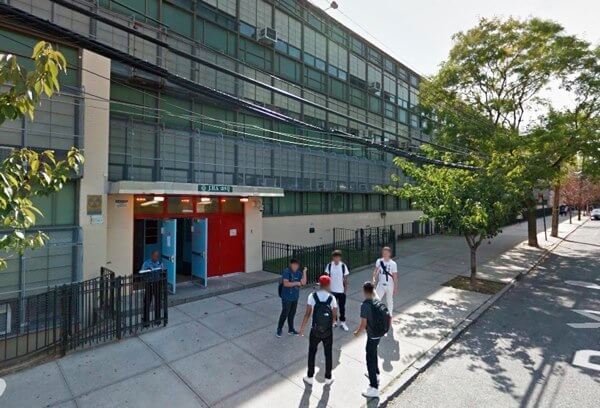By Mark Hallum
Mayor Bill de Blasio announced plans to improve education across the city by expanding the Community Schools Initiative.
Up to 69 additional schools will serve up to 108,000 students by utilizing and supporting community resources to impact the growth of families across the five boroughs.
The unique approach to education incorporates the services available from neighborhood organizations to support the child and the family. The strategy is what one elected official called a “holistic” approach to academics, health and mental health services, youth development, expanded learning opportunities and family supports that are critical to improving student success.
“Equity and Excellence is about evening the playing field for our students, and Community Schools help to do just that,” said de Blasio. “To reach success in their classes, our students often require some extra support outside the classroom. This expansion allows us to provide additional after-school activities, mental health counseling, enhanced family engagement, and so much more.”
Schools Chancellor Carmen Fariña said the program is making a positive impact on students by taking the best parts of community organizations and using them as key ingredients to student success.
“It’s essential that we invest in the whole child, and through the Community School model, we are bringing additional social emotional supports, mental health services, and deepening family ties,” Fariña said. “Schools are anchors for the entire community, and by embedding high-quality, community-based organizations into schools, we can meet the needs of students and families. With this expansion, these game-changing resources will benefit more than 108,000 students in all five boroughs.”
There are currently about 146 community schools in the city, and the addition of 69 exceeds the goal of meeting the 200 mark by the end of 2017, according to a release from the mayor’s office. The new additions will be funded with grants from the 21st Century Community Learning Center at $25.5 million a year for the next five years.
There was no breakdown on the number of schools for Queens.
State Sen. Jose Peralta (D-East Elmhurst), a member of the renegade Independent Democratic Committee, argued that community schools are not only good for students, but bring their families into the mix.
“Expanding learning opportunities to students and their families is vital to strengthen our communities,” Peralta said. “With the key participation of community-based organizations, community schools offer students a mechanism to build academically while engaging and supporting their families, a formula for success.”
State Sen. Toby Ann Stavisky (D-Flushing) said the Community Schools Initiative is a creative approach to giving students at struggling schools a leg up.
“Supporting our schools is essential in providing a well-rounded education for our children,” Stavisky said. “The Community Schools program operates with the understanding that improving struggling schools requires a holistic approach. It is more than just throwing money into equipment. It is also about engaging the community, health and wellness services and partnering with parents.”
Councilman Daniel Dromm (D-Jackson Heights), chairman of the Education Committee and a former public school teacher, said the transition of two schools in particular into community schools will make a direct impact on his constituents.
“Transforming IS 230 and PS 148 into community schools will benefit students in my district for years to come,” Dromm said. “Community Schools empower our children by offering a wide range of services, including support groups and childcare for parents, access to healthcare, mentorship and other valuable programs.”
According to the mayor’s office, more students will be enrolled New York City community schools than the entire student population of Baltimore or Denver.
Reach reporter Mark Hallum by e-mail at mhall



































